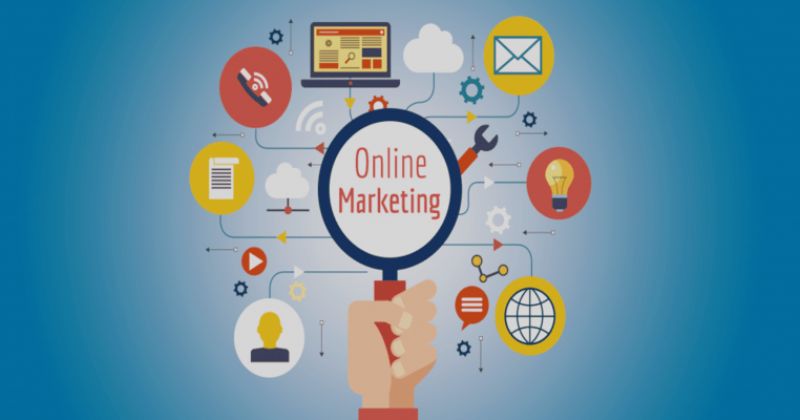You’ve built a website, but still struggle to rank high in search engines and drive substantial traffic. The solution may lie in artificial intelligence. AI has become an invaluable tool for search engine optimization, using machine learning algorithms to optimize your content and better understand user intent. By leveraging AI for SEO, you can analyze how people interact with and search for your website to determine the keywords and content that will rank the highest.
AI SEO tools can audit or technical seo audit your site to find issues impacting rankings like slow load times, broken links, and duplicate content. They provide insights into your top-performing pages so you can optimize other content.
AI can generate suggestions for blog topics and headlines optimized for search, and even create draft content and meta descriptions. By using AI and machine learning in your SEO strategy, you’ll gain valuable data-driven insights to refine your content and technical SEO. The results will be improved rankings, increased organic traffic, and a boost in qualified leads. With AI on your side, you can outrank the competition and build a successful online presence.
Understanding AI and How It Applies to SEO?
To rank higher in search results, you must optimize your website for AI and machine learning. AI is the broad concept of training computers to perform human-like tasks such as recognizing speech, images, and patterns. Machine learning is a specific application of AI that uses large amounts of data to train algorithms and predict outcomes.
How AI Powers SEO?
Search engines like Google use AI and machine learning to better understand web content and user intent. Their algorithms analyze massive amounts of data to determine the relevance and authority of web pages for search queries. To boost your Search engine optimization, you need to apply similar techniques. Some ways to optimize for AI include:
- Perform keyword research to find relevant search terms. Examine search volume and difficulty to determine the best keywords to target.
- Create high-quality, in-depth content on your target keywords. The more informative and comprehensive the content, the more likely search engines are to rank it highly.
- Use your target keywords in strategic places like page titles, URLs, headings, and content. Place them naturally and avoid over-optimization.
- Build internal links between pages on your site. Link to other relevant content using anchor text with target keywords.
- Earn high-quality backlinks from authoritative sites. Reach out to reputable websites and influencers to link back to your content.
- Ensure fast page load times and mobile optimization. If your pages take too long to load or don’t display well on mobile, search engines will rank them lower.
- Continuously analyze and improve your SEO strategy. As well as gain backlinks. Use tools to track keyword rankings, traffic, and backlinks. Make changes to your content and optimization based on the latest trends.
By leveraging AI for SEO, you can achieve higher search rankings and increase traffic to your website. But you must commit to an ongoing process of research, content creation, optimization, and analysis. Ranking well is a continual effort, not a one-time activity. With hard work and persistence, you can succeed.
Using AI Tools to Conduct Competitor Research
To gain valuable insights into your competitors and identify opportunities to outrank them, utilize AI tools for SEO competitor research.
Analyze Their Backlinks
Backlinks are one of the most important ranking factors. Use a backlink analysis tool like Ahrefs, Moz Link Explorer or SEMrush to assess your competitors’ backlink profiles. Look for high-authority, relevant backlinks to emulate. See if any are from guest blogging or broken links you could replicate. Mostly digital marketing agency use ahrefs to analyze competitor data.
Review Their On-Page Optimization
AI-powered SEO tools can audit a competitor’s on-page optimization. They check for page titles, meta descriptions, header tags, content, page speed, mobile-friendliness and more. See where competitors are lacking to determine how you can optimize better and outperform them.
Track Their Keyword Rankings
Use ranking trackers like SEMrush, Ahrefs or Moz to monitor competitors’ rankings for your target keywords over time. Look for downward trends in their rankings that you could capitalize on by optimizing for those terms. Also look for head terms where they rank but you don’t find new opportunities.
Analyze Their Traffic
See how much traffic your competitors are getting from search engines using tools like SEMrush, Ahrefs, and SimilarWeb. Look at their overall traffic volumes, traffic by device, referrals and keywords. Find areas where their traffic is declining or stagnant that you could gain more visibility in.
Conducting routine competitor research with AI SEO tools is key to gaining valuable insights and achieving higher search rankings. Continually analyze competitors’ backlinks, on-page optimization, keyword rankings and traffic to boost your own search performance and outrank the competition.
Generating High-Quality Content With AI Assistant Tools
AI-powered writing assistants can help you create high-quality content for your website. These tools utilize natural language processing to analyze your input and generate original content based on your instructions. Some options to consider include:
Google’s Smart Compose for Gmail and Smart Reply in Google Docs use AI to suggest relevant responses and content in real time as you type. The AI has been trained on millions of data points to understand context and suggest helpful phrases and sentences to include in your writing.
Copywriting tools like Copy.ai and Conversion.ai leverage large datasets of high-converting copy to generate persuasive content for your site. You provide the product or service you want to promote, your target audience, and key benefits or selling points. The AI will then produce a draft of compelling copy tailored for your needs.
Content creation platforms such as Article Forge, Blog Post Generator, and Post Creator analyze your topic and keywords before curating content from various online sources. The platforms then rewrite and restructure the information into a unique article in your own words. You simply need to review and edit the draft to ensure high quality before publishing.
Using AI to assist with content generation allows you to focus your time on high-value tasks while still publishing engaging content for your audience. The AI cannot replace human writers and editors, but it can help automate parts of the content creation process through its natural language skills and access to large datasets. With an AI writing assistant on your team, you’ll be publishing high-quality, search engine-optimized content in no time.
Optimizing on-Page Elements With AI-Powered Platforms
To boost your search engine optimization (SEO) and increase organic traffic to your website, leverage artificial intelligence (AI) to optimize key on-page elements. AI can analyze your pages and content to determine opportunities for improvement based on hundreds of factors that impact search ranking.
AI-powered SEO platforms evaluate elements like page titles, meta descriptions, header tags, content, internal linking, and page speed. They provide recommendations to strengthen each element. For page titles and meta descriptions, aim for keywords and phrases your target audience would search for. Include your primary and secondary keywords, placing the most important ones first.
AI can evaluate your header tag structure and content to ensure important keywords and key phrases are included in strategic header levels based on search intent. It may suggest reorganizing or revising headers for optimal SEO value.
For content, AI checks that you have a good keyword density, your content is focused, and you have a coherent theme and logical flow. It looks for opportunities to add related terms and phrases to improve searchability. It can even suggest reorganizing or rewriting content in a more engaging, scannable way.
Internal linking allows search engines to crawl your site. AI tools evaluate your internal link structure to make sure important content is well connected and linked. They provide guidance on adding contextually relevant internal links to boost page authority and keyword rankings.
Finally, AI analyzes your page load times and provides tips to optimize page speed. Faster loading pages lead to lower bounce rates, more time on page and higher rankings. AI SEO platforms are a powerful way to strengthen your on-page SEO by tapping into artificial intelligence. Implementing their recommendations can help move your pages up in the search results and increase traffic.
Monitoring Rankings and Results With AI SEO Analytics
To determine the success and impact of your AI SEO efforts, you need to closely monitor your search rankings and traffic results. AI-powered SEO tools provide analytics to track how your pages rank for target keywords, as well as how much traffic is coming from search engines.
Review your rankings reports regularly to see which pages are ranking higher over time for priority keywords. The higher the ranking, the more visible that page will be to searchers. Pages that move up several spots, especially into the top three results on page one, will typically see substantial increases in traffic.
Monitor how much of your overall website traffic is coming from search engines, which should increase over time with improved rankings. Compare search traffic month-over-month and year-over-year to measure the impact of your AI SEO program. Significant increases in traffic prove that your efforts are paying off.
Track click-through rates for your ranking keywords to see which terms are most effective at driving people to your pages. The higher the click-through rate, the more compelling that listing appears to searchers. Keywords with a high click-through rate and a prominent ranking position will funnel the most traffic to your site.
Check your site analytics to see how people are interacting with your pages after arriving from search engines. Look for decreases in bounce rates and increases in time on page, as well as higher conversion rates. This shows that searchers are finding the information they need on your site.
By meticulously monitoring all of these AI SEO metrics over time, you gain valuable insights into what’s working, what needs improvement, and how to further optimize your search rankings going forward. AI provides the data and analytics to constantly refine and enhance your SEO program for the best results.
Conclusion
You now have the knowledge and tools to implement AI-powered SEO strategies that can significantly boost your website traffic and search rankings. By optimizing your content with natural language generation, analyzing keywords and optimizing your pages, and automating technical SEO best practices, you’ll gain a competitive advantage and see major improvements in how search engines and users find and engage with your site. The future of search and marketing is AI, and adopting AI SEO will ensure your business is ahead of the curve. The time to start is now – implement even one of these AI techniques and watch as your traffic and rankings soar. The rewards of an AI-optimized SEO strategy are real and within your reach. Take advantage of all AI has to offer and propel your site to the top of the search results.
FAQ’s
What are the main benefits of implementing AI SEO?
Personalised results, increased efficiency, and increased precision are just a few of the major advantages that AI SEO offers. It supports the identification of pertinent keywords, search engine optimization (SEO), building backlinks, and performance tracking for your website.
How can AI help me choose the best keywords?
Intelligent algorithms are used in AI SEO to analyze user search behavior. The exposure of your website is increased as it quickly identifies the best keywords that match your content and target market.
What methods does AI SEO assist in backlink building?
AI SEO can help you locate trustworthy websites for the purpose of producing backlinks and can direct you in creating links that improve the authority of your website. Improved rankings are the result of these backlinks, which tell search engines that your website is trustworthy.
How can AI SEO improve the effectiveness of my SEO efforts?
AI SEO automates a variety of processes, including website inspection(website designing) and keyword research. This automation allows you to focus on other areas of your organization because it not only saves time but also speeds up the procedure while maintaining accuracy.




